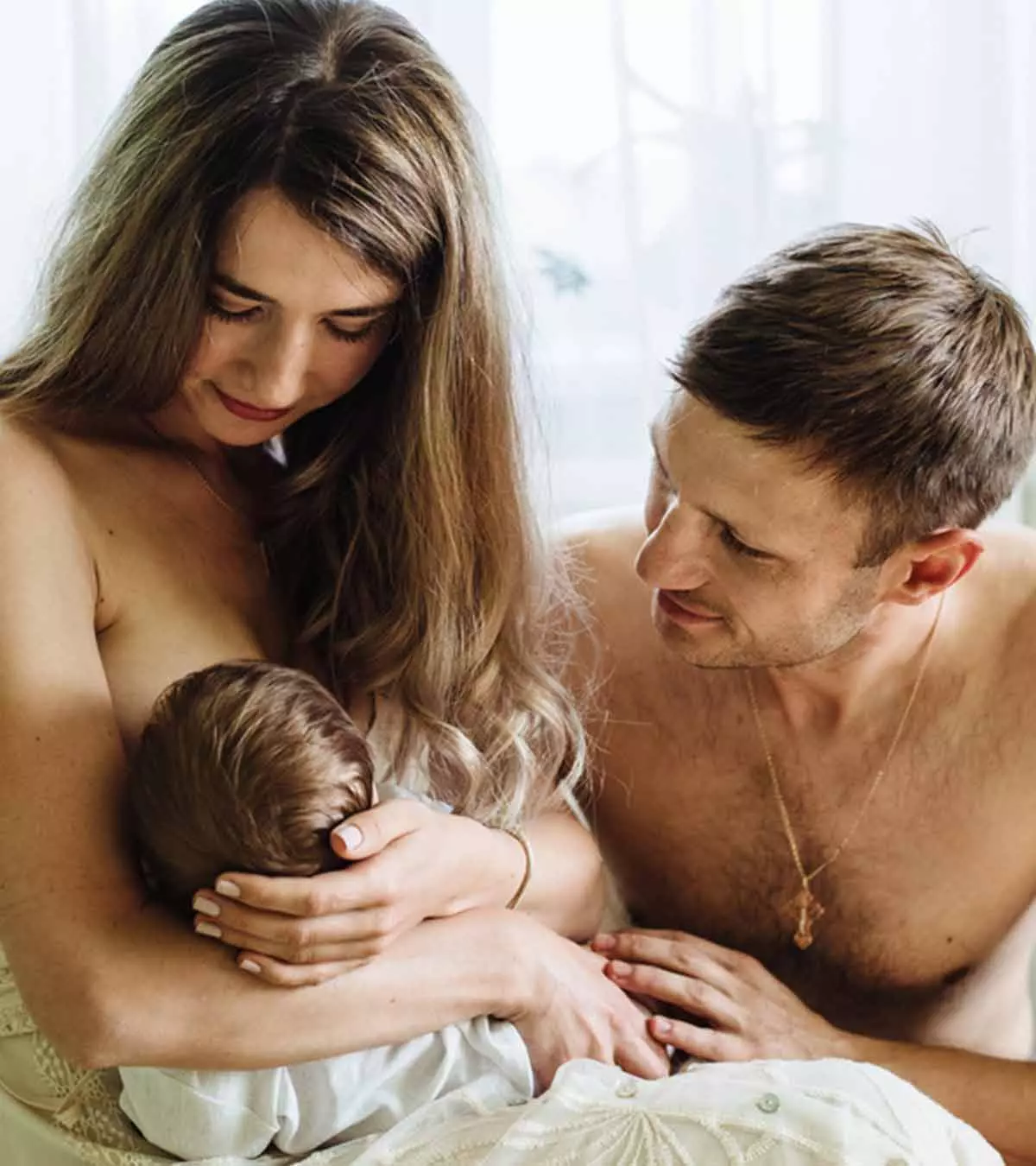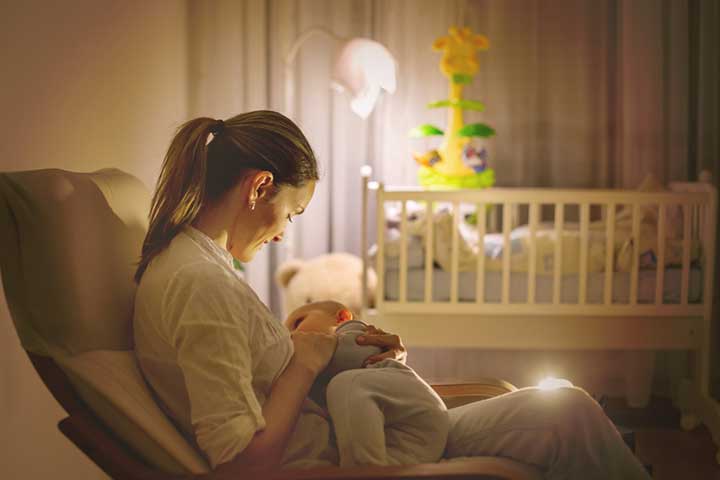
Image: Shutterstock
It’s no coincidence that you see so many kids born without hardly a year’s age gap between them, even if the couple wanted a second baby. Gynaecologists and health experts say that most of the pregnancies that occur within the first eighteen months of having a baby occur by accident!
As shocking as that might sound, there’s a sound reason behind it.
And that’s treating breastfeeding your baby as a type of birth control. Call it a ‘get out of jail’ card you think you can use to enjoy some good time without worrying about the consequences. The only difference? You likely will have to worry about the consequences.
According to health experts, breastfeeding is not a foolproof birth control method. It’s true that when you’re breastfeeding, you likely won’t have a regular menstruation cycle, making you think you have a large window during which you can get intimate without worries (1). But your ovulation cycle will still likely continue. Which means you still stand a chance to get pregnant.
Image: Shutterstock
Most gynaecologists do not recommend relying on breastfeeding as your only birth control after having a baby. Ask them, and they’ll tell you hormonal birth control methods are actually better and safe for the baby too. However, most new moms have reservations about using them. Hormonal birth control pills can affect the estrogen and progesterone levels in your body, thus messing with your milk supply (2).
What do you do in such cases? Falling back on IUDs and condoms can help, rather than pinning all your hopes on lactational amenorrhea. Lactational amenorrhea is the medical term that implies that breastfeeding mums can’t get pregnant and can hence, use it as a birth control method (3).
But for LAM to be an effective tool to prevent pregnancy, certain conditions have to be fulfilled. These include:
- Your baby should be less than six months of age.
- They should be exclusively breastfed (no formula in the middle).
- And you must not have your periods.
Image: Shutterstock
If your baby is six months or older, you’ve been supplementing their diet with formula and been having periods on and off; you can very much get pregnant.
How does that work? Let us explain.
When nursing mothers kick-start the weaning process, their ovulation cycle resumes. New dads also face a hormonal rebound at this time. Experts believe that testosterone levels in dads drop post-childbirth, which reduces fertility as they adapt to the new role (and the accompanying stress) of fatherhood (4).
But once they’re well-adjusted, their testosterone levels return back to normal – generally around six months after childbirth. However, this doesn’t mean that reduced testosterone levels post-childbirth affect their capacity to have children temporarily. They can still pretty much make babies in that phase.
Image: Shutterstock
Hence, don’t assume that pregnancy is out of the question after childbirth. As long as you’re ovulating and your partner is producing sperm, it’s very much on the cards (5).
For most new parents, intercourse is out of the equation right after childbirth, which puts contraception out of the equation too. But a momentary romp in the sack can turn into a lifelong commitment, which is why it’s important to discuss postpartum contraception methods with your gynaecologist.
Being aware of your options in front of you can help you prevent a second, unplanned pregnancy. Now, of course, if it happens, most parents will welcome a second baby with open arms, but it doesn’t hurt to be too careful. You can always have a second baby when you truly want it and make your family complete and happy.















